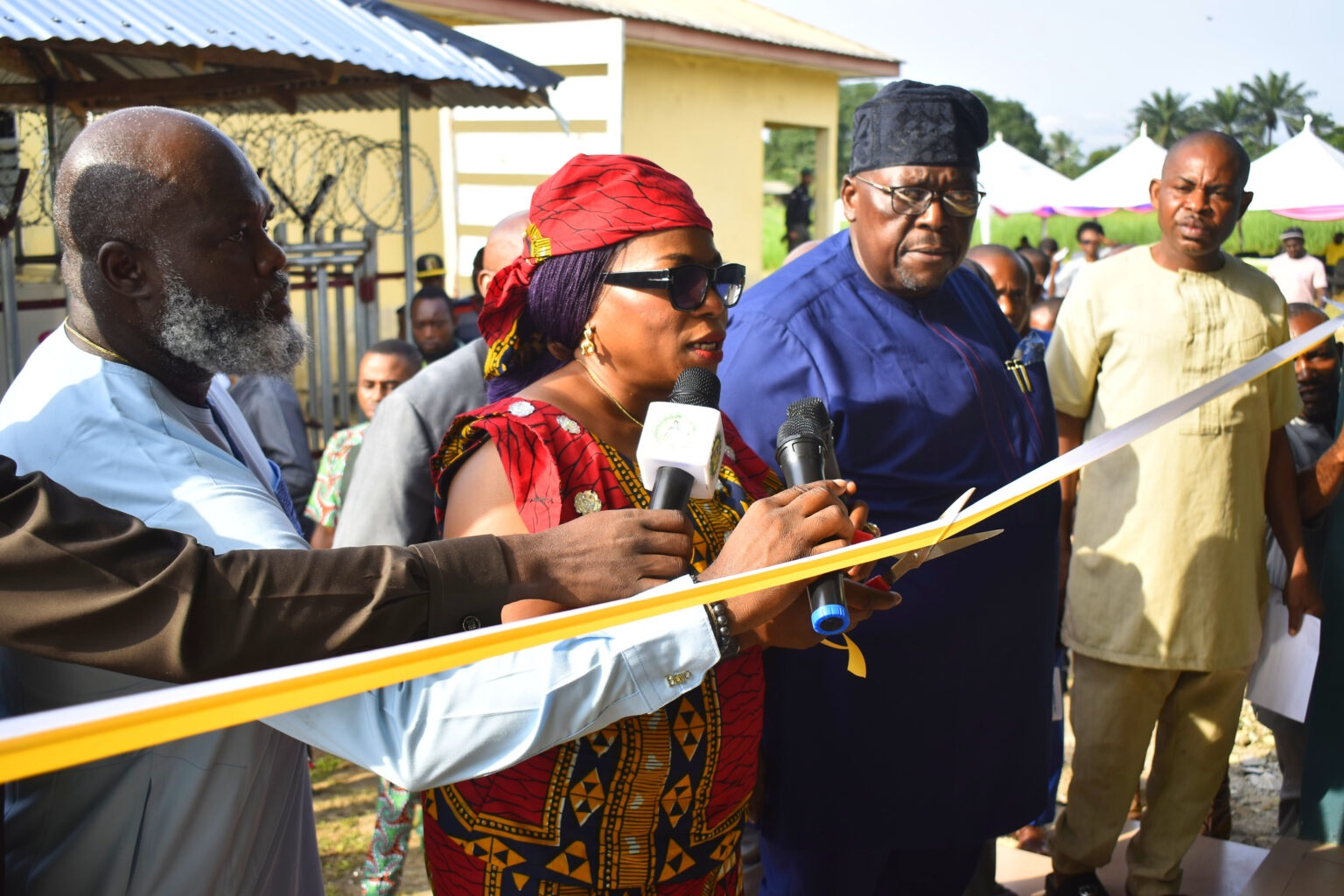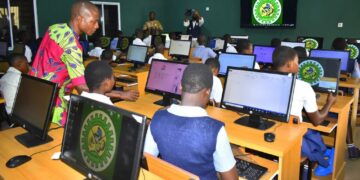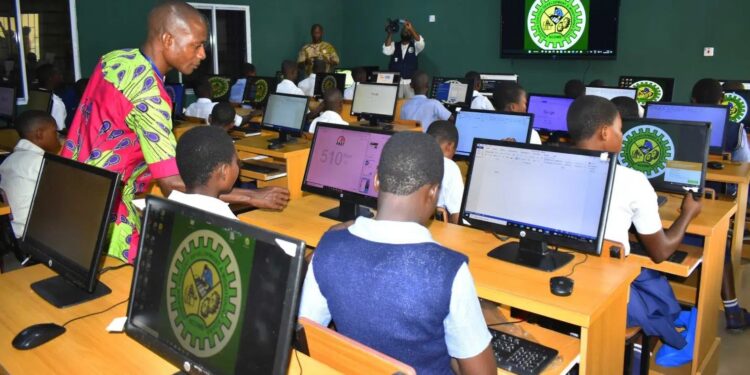By John Ikani
In a deliberate effort to deepen Internet penetration and digital education in the country, the Nigerian Content Development and Monitoring Board (NCDMB) on Tuesday commissioned three state-of-the-art Information and Communication Technology (ICT) centres, with dedicated broadband Internet, in three rural secondary schools in Akwa Ibom State.
The benefiting institutions are Girls High School, Ikot Ibiok, Northern Annang Secondary Commercial School, Utu-Etim-Ekpo, and Government Technical College (GTC), Ikot Uko-Ika. For each of the schools a dedicated block, fully air-conditioned and well-secured with protectors and reinforced metal windows, serves as the ICT Centre.
Each of the centres has 31 units of desktop computers, 31 purpose-built desks and 31 seats, two stools, 25 solar panels (already installed), two 20kVA inverters with 30 pieces of battery, a 20kVAgenerator, a server unit, a printer and a scanner, a router and a dish for Internet services, and a giant smart screen display board with vast teaching and learning potentials.

They represent the latest in the initiatives of the NCDMB in capacity building, with over 15 million training manhours already recorded in diverse skills acquisition and empowerment programmes since the Nigeria Oil and Gas Industry Content Development (NOGICD) Act, 2010, came into effect. Many of the 13,000 beneficiaries so far have become successful professionals and entrepreneurs in the industry and related sectors of the economy, including the maritime.

The Executive Secretary, NCDMB, Mr Simbi Kesiye Wabote, an engineer told Management and staff of Girls High School that the mandate of the Board centres on local capacity development and that it has a deliberate policy to make students familiar with digital tools for learning as a way of enhancing their competitiveness as they progress in education. According to him, the policy is “catch them young,” which means stimulating their interest in the sciences and engineering at an early age so they could pursue careers in those disciplines as they grow up.
In pursuit of that policy, he explained, the Board is also deliberately promoting science, technology and mathematics (STEM) education in secondary schools across the country to guarantee the development of indigenous manpower to secure the future of the country’s oil and gas industry.

The NCDMB boss, who was represented by the Board’s General Manager, Corporate Communication and Zonal Coordination, Mrs. Angela Okoro, said the ICT centres would make it possible for the students to have access to the current state of knowledge in all subject areas, as the smart screen and dedicated broadband Internet provide access to the latest publications and research results. The centres also guarantee recognition by the West African Examinations Council (WAEC) for teaching of ICT-related subjects and the students would be able to prepare and sit for various external exams.
In his own remarks, the NCDMB Zonal Coordinator for Akwa Ibom and Cross River States, Mr. Uduak Obot, said, “It is a thing of joy to start a thing and complete it,” recounting how work on the ICT centres began few months ago and had thus far been completed. He thanked the principal and staff of the school as well as the contractor of the project for their efforts and quality work.
He told the students that “the oil and gas industry is knowledge-based” and that they “must be ICT-savvy” to be sufficiently competitive in that sector. The ICT Centre, he emphasised, elevates the standard of the school, and children of the masses now have access to digital tools that only their counterparts in the expensive private schools have been enjoying over time.
According to him, the dedicated broadband Internet now provided “will enable students to read any book anywhere in the world,” a fact that makes the facility a library of an advanced nature. Their studies would no longer be hampered by lack of money to buy booksor non-availability of required texts from local bookshops.
His charge to the Management and students of the school as well as the host community: “Take full advantage of the facilities; take ownership,” adding: “NCDMB will be checking on the Centre from time to time.” He assured the school that experts would soon be sent by NDCMB, to train all the teachers on how to use the smart screen provided.
The principal, staff and students as well as the Ikot-Ibiok community thanked the NCDMB profusely for establishing such a Centre at their school, assuring the Board that they would ensure the safety of the facilities. A spokesperson for the community, Obonganwan Ekaette Nduese Essien, wife of a former Minister of Lands, Housing and Urban Development, said the commissioning was a historic development for the community as it had raised the standard of the school.
The octogenarian recounted how girl-children of the community had been so disadvantaged in the past, without opportunity for secondary school education, until the establishment of the Girls High School. The ICT Centre, she enthused, means young girls would be able now to get the best education without having to travel to distant places.
At Northern Annang Secondary Commercial School and the Government Technical College, NCDMB restated its history and mandate, and explained the importance of the ICT Centres donated to the schools. The Managements of the schools, students and communities were equally appreciative and wished the NCDMB success in all its endeavours. They all promised to protect the facilities.
Other Management staff of the NCDMB at the events included Engr. James Eyefigha (Zonal Coordinator, Edo/Delta), Dr. Emmanuel Ohanyere (Zonal Coordinator, Imo/Abia), Mr. Dala Asangolo (Zonal Coordinator, Rivers/Bayelsa), and Mr. Joseph Adebayo, Project Manager/Zonal Coordinator, Headquarters).



































